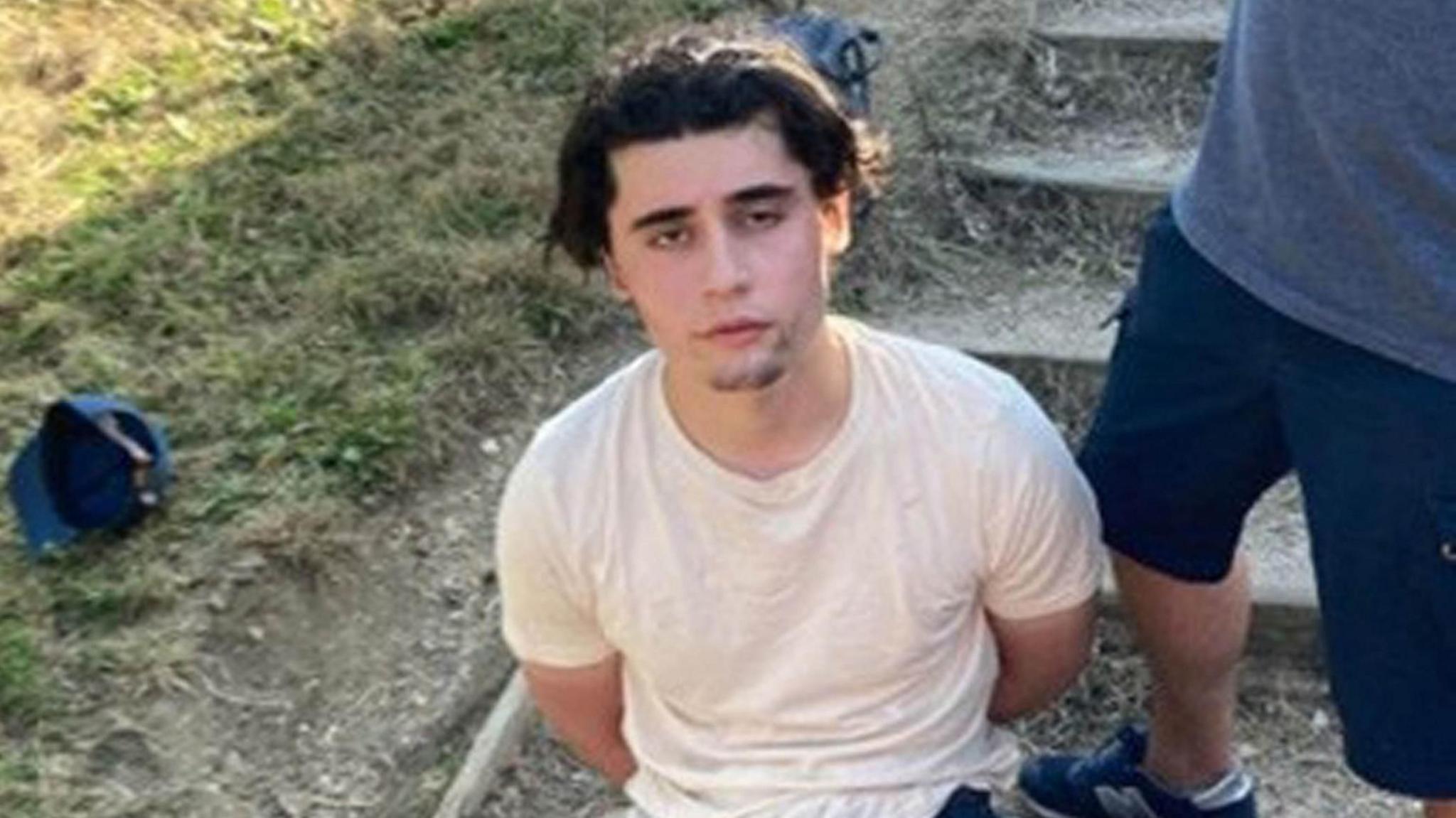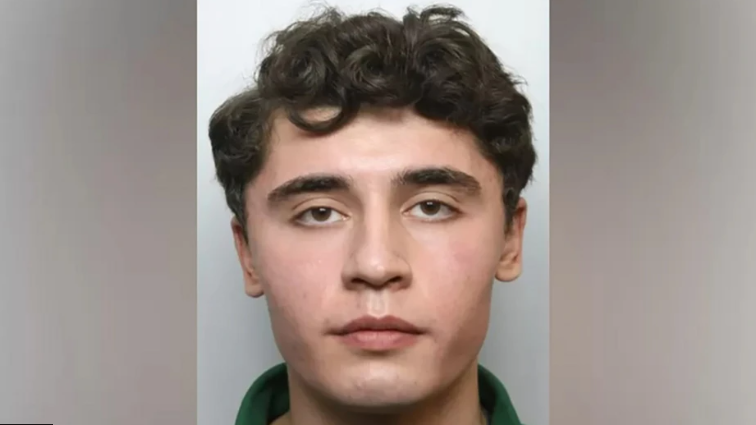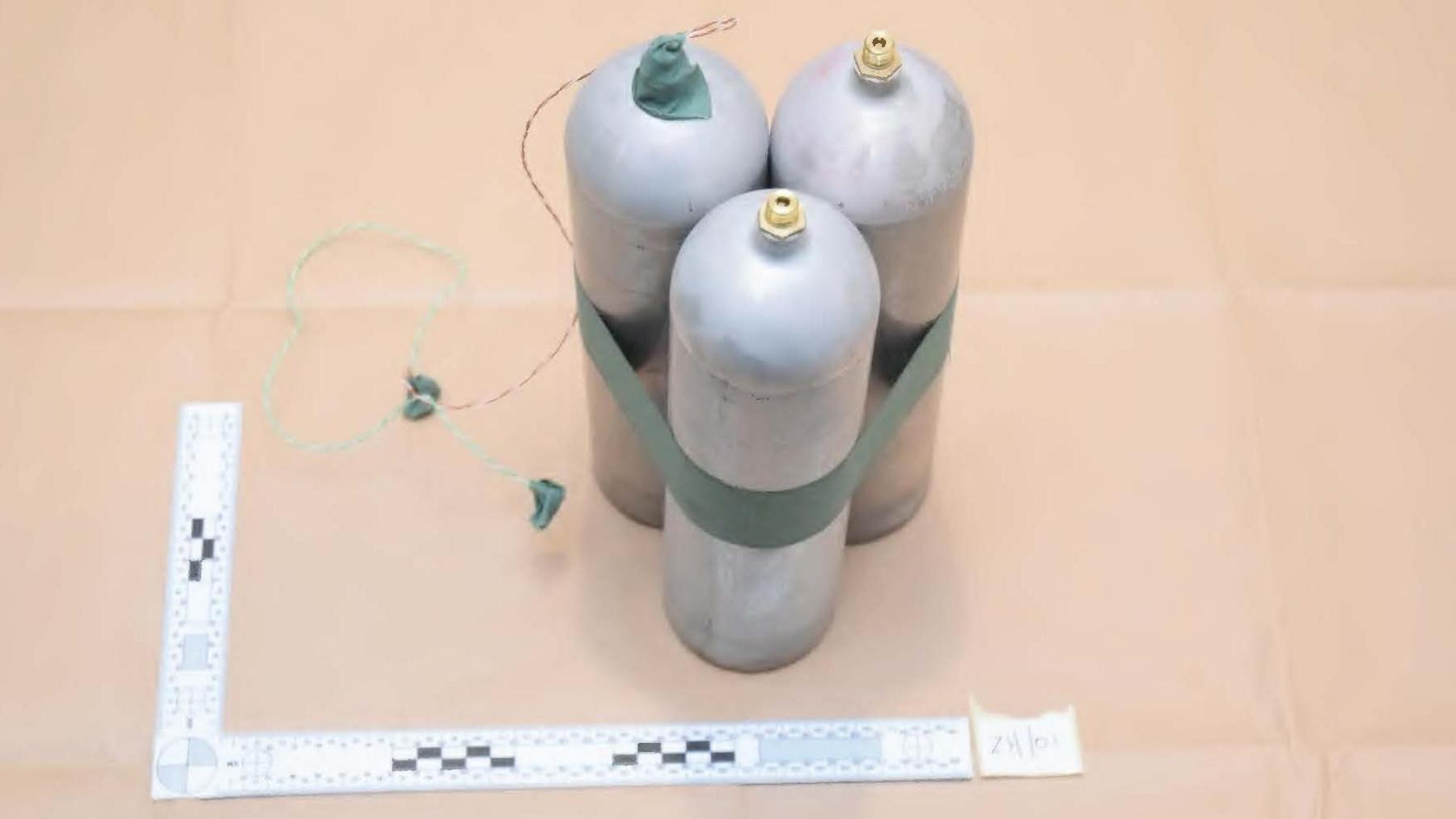Daniel Khalife found guilty of spying for Iran

- Published
Former British army soldier Daniel Khalife has been found guilty of spying for Iran.
Khalife, who escaped prison while awaiting trial, collected information and passed it to Tehran and was found to have gathered the names of special forces soldiers. He was cleared of a charge of perpetrating a bomb hoax at his army barracks.
The 23-year-old admitted breaking out of Wandsworth prison in London in September 2023 by strapping himself to the underside of a food delivery lorry during his Woolwich Crown Court trial.
Justice Bobbie Cheema-Grubb told his trial at Woolwich Crown Court that Khalife would face "a long custodial sentence" when he is sentenced early next year.
Khalife, whose actions breached the Official Secrets Act and the Terrorism Act, did not show any emotion as the verdicts were read out.
Prosecutors said Khalife played a "cynical game" after he contacted a man linked to Iranian intelligence soon after joining the army in September 2018, before later telling MI6 he wanted to be a double agent.
He collected sensitive information that posed a real danger in the wrong hands, the court heard.
Khalife contacted a man linked to Iran's Islamic Revolutionary Guard Corps (IRGC) on Facebook.

The UK will never know what the most sensitive material Khalife sent to Iran was
He built a relationship with Iranian contacts - at one point being sent to collect $2,000 (£1,500) left in a dog poo bag in a north London park.
Bethan David, head of the Crown Prosecution Service's counter terrorism division, said that as a soldier, Khalife was "employed and entrusted to uphold and protect the national security of this country".
"But, for purposes of his own, Daniel Khalife used his employment to undermine national security."
She added that his information sharing "could have exposed military personnel to serious harm, or a risk to life, and prejudiced the safety and security of the United Kingdom".
Manhunt: The Search for Daniel Khalife
The search for Daniel Khalife, who escaped from Wandsworth Prison in London by clinging to the underside of a delivery vehicle.
During his time in the army, Khalife gathered the names of 15 serving soldiers – including some from the special forces.
Prosecutors believe he sent the list to Iran before deleting any evidence.
He denied ever having sent it and claimed the information he did pass on was mostly fake. However, he seemingly sent at least two classified documents - one on drones and another on "Intelligence, Surveillance & Reconnaissance".
The UK will never know what the most sensitive material Khalife handed over - most of the messages he exchanged with contacts on the encrypted communication app Telegram were deleted.
His lawyer Gul Nawaz Hussain KC had claimed that the double agent plot was "hapless" and more "Scooby-Doo" than "007”.
Khalife became the subject of a high-profile manhunt after breaking out of prison, before being arrested 75 hours later when he was spotted cycling on a canal tow path. He made an attempt to contact the Iranians before he was found, sending a Telegram message which said simply: "I wait."
Watch: CCTV shows how Daniel Khalife escaped
His escape came while he was on remand for offences under the Official Secrets Act and the Terrorism Act, and with perpetrating a bomb hoax.
His arrest came after fled his army base, Beacon Barracks in Stafford, in January 2023 after realising he would likely face charges over allegations of passing on classified information.
During his trial, the jury heard how an unrealistic, fake bomb, in the form of three nitrous oxide canisters taped together, was found on his desk after he failed to report for duty.
Officers who visited the site believed the device to be fake. However, a bomb disposal unit was called, and five housing blocks were evacuated.

After his arrest, Khalife told police he had wanted to offer himself to UK security agencies, having emailed MI6 as far back as 2019.
Speaking after the verdict, Commander Dominic Murphy, the head of the Metropolitan Police's Counter Terrorism Command, said: "The threat to the UK from states such as Iran is very serious, so for a soldier in the army to be sharing sensitive military material and information with them is extremely reckless and dangerous".
Khalife's escape from Wandsworth also raised serious questions about security and staffing at the prison, with 40 inmates temporarily transferred to other sites while an investigation into the breakout took place.
Damien Hinds, a former prisons minister, said about 40% of prison officers did not turn up for their shift at Wandsworth on the day of Khalife's escape, but the Ministry of Justice insisted it had been adequately staffed.
A spokesman for Sir Keir Starmer, the prime minister, said that while Khalife's case was "an isolated incident", such matters were taken "extremely seriously, and more broadly, it is why we continue to take strong action and hold the Iranian regime to account".